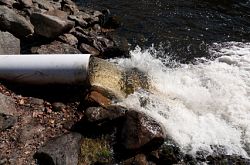

The Environment Agency have published figures that indicate only 66% of serious pollution incidents were self-reported by water companies last year.
Serious category 1, 2 or 3 pollution incidents were only reported 1/3 of the time by the nine utilities providing water and sewerage services in England.
Companies appear reluctant to make quick reports. One example involved Southern Water, where a fault at a water waste pumping station led to numerous discharges of untreated effluent into the sea near Margate. This was worryingly not reported within 24 hours.
Reporting as soon as possible can help to reduce the impact to the environment in addition to reducing any damage to the firm's reputation.
It makes sense to self-report as it is also a factor taken into account by the Environment Agency when making a decision on prosecution. Guidance states: "where the offender provides us with the details of an offence voluntarily or through a self-reporting mechanism, we will take this into account when deciding on a sanction or whether advice and guidance will suffice".
In the event an offence does go to court, the new sentencing guidelines also allow magistrates to take into account self-reporting as a mitigating factor. Higher penalties for breaches of environmental regulation are also included in the new sentencing guidelines.
The Environment Agency are hoping this will encourage correct self-reporting, and aim to have a 75% rate of self-reported pollution incidents involving water companies by 2020.